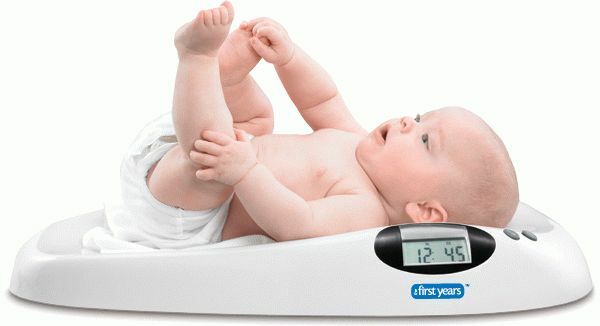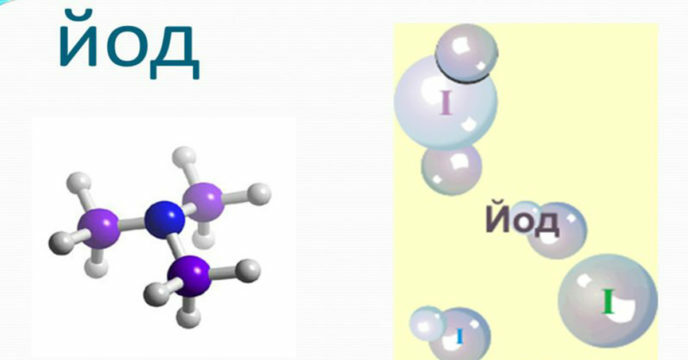In the modern world, medicine pays close attention to procreation. Doctors try to identify all the deviations and defects in the child at the earliest stages of pregnancy, immediately after birth. Among the many congenital diseases observed in children, hypothyroidism is very dangerous and serious. It is characterized by impaired functioning of the thyroid gland, a decrease in the amount of its hormones in the blood. Hypothyroidism in newborns can occur due to many reasons. His diagnosis is carried out while he is with his mother in the hospital, on the third or fourth day after birth.
The main symptoms of the disease: delayed development, both in the physical and mental direction, teething much later than usual in children, increased dryness of the skin. Treatment of infants with congenital hypothyroidism is carried out with the help of drugs that replace thyroid hormones. Timely intervention, identifying a health problem and taking the necessary measures gives children the chance to grow and develop on a par with their peers, be no worse, not more stupid, not less than others. If you do not attach importance to the disease, in the future defects in the skeleton of the child may appear, problems with the nervous system may appear.
Conception of congenital hypothyroidism

Congenital hypothyroidism refers to a disease associated with impaired functioning of the thyroid gland in newborns. It is two to two and a half times more common in girls than in boys. Statistics show that this disease is detected in 1-2 children from 5000 who are born.
Why the thyroid gland is so necessary for the correct, timely development of the baby? It is the organ of the endocrine system that performs the following functions in humans:
- regulation of metabolism: fats, carbohydrates, proteins, and calcium;
- body temperature control;
- promotes the formation of intelligence in the child.
Since birth, the thyroid gland has been directly involved, the main role in the growth, development of the baby's body, especially bones and the development of the nervous system. One of the tasks performed by the thyroid gland is the development of two types of hormones: thyroxine, triiodothyronine. The shortage of these substances can significantly affect both the physical and mental development of the personality, inhibit mental processes, the growth of the child.
Causes of
Congenital hypothyroidism in children occurs for a variety of reasons, the main of which are:
- Heredity. Basically, due to genetic mutations, when the child is found, the formation, functioning of the thyroid gland is disrupted in utero.
- Incorrect formation, production of thyroid hormones, for example, due to deterioration, slowing of iodine metabolism.
- The defeat of the center of the nervous system responsible for the functioning of the thyroid gland, which can cause serious disruption in the endocrine system.
- Susceptibility to thyroid hormones deteriorates.
Symptoms of
Congenital hypothyroidism, mainly manifested in infants not immediately, but a few months later. Only in a countable number of children can the disease be detected in the first days, weeks of life. The most vivid symptoms of the disease are: swelling of the face, large weight( more than three and a half kilograms), cyanosis in the nose, lips( cyanosis), edema in the supraclavicular area, half-open mouth, roughness of the voice, jaundice, prolonged severalweeks.
Later, at three and four months of age, congenital hypothyroidism is expressed in the form of impaired appetite, brittle hair, constipation, lower body temperature, dryness, and skin peeling. Then, with the growing up of the child, physical, mental inhibition in development is added to them.
Thanks to modern medicine, versatile examination of infants, the detection of congenital hypothyroidism allows you to immediately take up his treatment, at first to help the baby develop on a par with other children, his peers. Ignoring the disease subsequently affects children negatively, leads to cretinism, when they have deformed faces, curving legs, arms, where lower growth, susceptibility to chronic diseases, they cease to develop intellectually.
Diagnostics

In newborns, the diagnosis of congenital hypothyroidism is carried out using a specially designed Apgar scale, which lists the most common symptoms, reflects their significance in scores:
- constipation - 2 points;
- umbilical hernia - 2 points;
- facial swelling - 2 points;Pale yellowness - 1 point;
- heavy weight( more than 3.5 kg) - 1 point;
- weakness in muscles - 1 point;
- prolonged jaundice( more than 3 weeks) - 1 point;
- large language - 1 point;
- open posterior fontanel - 1 point;
- the duration of pregnancy is more than 40 weeks - 1 point.
Congenital hypothyroidism is suspected if more than five points are scored during the examination.
In order to determine exactly whether the baby is sick or not, on the third or fourth day of stay in the hospital, blood is taken from his heel. The result of the analysis becomes known a few weeks after the blood collection. The level of thyroid-stimulating hormone reveals the presence or absence of congenital hypothyroidism. If the concentration of TSH is greater than 50 mU / L, this is already a cause for concern. Parents are informed of the disease if the suspicion is confirmed.
Treatment of
If congenital hypothyroidism in the baby is confirmed, then it is necessary to begin treatment without delay. The slightest delay, ignoring can have the most deplorable consequences, have a negative impact on his mental and physical development. The procedures performed in a timely manner will have a beneficial effect on the child, he will not be different from other children in anything, he will also be active, intelligent, intelligent.
As a rule, the main form of treatment for newborns from this disease is substitution therapy with drugs of levothyroxine sodium. It positively affects the growth of the body and the formation of the necessary substances, with the use of small dosages, the average dose of the drug can improve metabolism, increase the need for tissues in oxygen, contribute to the rapid, timely development of the baby and the growth of his body. Improvements after the use of this medication become visible within a week and a half.
The main feature of levothyroxine, its advantage over other drugs is the similarity in its chemical composition with thyroxine. Breastfeeding is most often recommended to give medicine in the morning feeding, older children are advised to use levothyroxine in the morning, one hour before a meal, washing it with a small amount of liquid.
Positive dynamics in a child can be determined by the following indicators, criteria:
- Normalization of the required level of thyroid-stimulating hormone in the blood.
- Concentration of thyroxine is in accordance with the norms. Up to one year the child's level of substance is determined every two to three months, in the subsequent - every three to four months.
- Good indicators of bone growth, skeleton.
- Positive, according to the norms of the dynamics of intellectual development.
- Positive, consistent with the norms of the dynamics of physical development.
Normalization in the blood of children of thyroxine occurs already ten to fourteen days after the start of treatment, and thyroid stimulating hormone - in two to three weeks. Dosage to each newborn is assigned strictly individually, based on his condition, tests, clinical data, laboratory tests. Tablets of levothyroxine occur in different dosages, at 25.50 and 100 μg.
Dosage of levothyroxine
During the first few weeks after birth, the initial dose is usually prescribed from 12.5 to 50 μg / day per square meter of the body surface, and the maintenance dose is 100 to 150 μg / day.
Up to six months, newborns are given 8 to 10 μg / day.in terms of one kilogram of weight, from six months to a year - from 6 to 8 mcg / day.for 1 kg of weight, from year to five years - 5-6 μg / day.for 1 kg of weight, children from 6 to 12 years are usually prescribed 4-5 μg / day.for 1 kg of weight.
Prescribe treatment for newborns with congenital hypothyroidism can only the appropriate specialist - a doctor endocrinologist. Observe the course of treatment, changes in the state of children should, along with the endocrinologist, also pediatricians, neuropathologists.
With the timely detection of problems, the detection of congenital hypothyroidism, the implementation of the recommendations of doctors, the correct treatment, the baby's development, growth, intellectual abilities will not differ from his peers.



